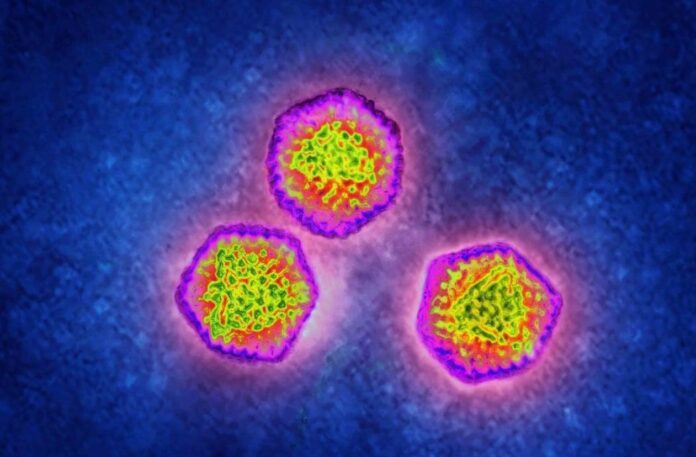Allogeneic stem cell transplantation (allo-SCT), a process in which the patient’s stem cells are replaced with those from a donor, may be used to treat patients with blood cancers and other hematologic diseases.
Patients who undergo this treatment are extremely vulnerable to infectious diseases that may cause severe morbidity and death.
The existing therapies for individuals who contract infections following allo-SCT possess multiple drawbacks.
“Traditional antiviral medications often have difficult-to-tolerate toxicities, such as myelosuppression or kidney injury,” says senior author Bilal Omer. “Moreover, their efficacies are limited in this patient population, and treatment resistance develops relatively easily.”
In this phase II clinical trial, Omer with other colleagues tested the safety and effectiveness of posoleucel, an experimental therapy made up of donor T cells that target six of the most common viruses found in patients after allo-SCT: adenovirus, BK virus, cytomegalovirus (CMV), Epstein-Barr virus, human herpes virus 6, and JC virus.
“The ability to target six viruses with a single therapy would be beneficial for patients with multiple viral infections,” adds Omer. “Additionally, posoleucel is the first T-cell therapy in development for BK virus, which can cause severe bladder infections, resulting in excruciating pain for patients.”
Since posoleucel uses healthy donor T cells instead of the patient’s or transplant donor’s T cells, it doesn’t have to go through the long process of development that more customized therapies do. Instead, it’s a ready-to-use “off-the-shelf” therapy, as Omer put it.
He said that sufferers with these infectious diseases often have severe symptoms and need to be treated right away.
In the trial, there were 58 adults and children who had been treated with allo-SCT for cancer or other blood diseases and were infected with at least one of the six viruses that posoleucel is meant to fight.
Patients who were eligible either didn’t respond to standard treatments for these viruses or couldn’t handle them. The trial population had a total of 70 viral infections, the majority of which were caused by the CMV and BK viruses.
Within six weeks of receiving posoleucel, the quantity of circulating virus was decreased by an average of 97%, and responses were seen in 55 of 58 individuals (95%).
Ten patients (83 percent) of the 12 patients who had multiple viral infections responded to the viruses they were infected with.
Complete response was defined as a drop in viral load to normal range and remission of clinical signs and symptoms, or a reduction in viral load of at least 50% or improvement in clinical signs and symptoms by at least 50%. (partial response).
Virus-specific responses:
- Adenovirus: Within six weeks, 83 percent of 12 patients showed improvement.
- BK virus: After six weeks, all 27 patients had recovered completely.
- CMV: Within six weeks, 96 percent of the 24 patients showed improvement.
- Epstein-Barr virus: In only six weeks, all two patients had a complete recovery.
- Human herpes virus 6: Three out of four patients responded, and all four patients’ viral loads decreased.
- JC virus: The viral symptoms of the one patient who had JC virus infection initially stabilized, but eventually the symptoms worsened and the patient passed away.
In this study, no patients developed cytokine release syndrome. Acute graft-versus-host disease (GvHD) was documented in 13 patients (22%); however, only four of these instances were regarded as de novo cases as GvHD had already been identified in 9 patients before they received posoleucel therapy. Acute GvHD grade 2 or higher was documented in just three cases.
Skin flares were the most prevalent GvHD symptoms, and they were often effectively treated.
The main discovery, according to first author Thomas Pfeiffer, is that 95% of individuals whose infections had been resistant to traditional treatments responded to posoleucel with matching drops in viral loads and low incidences of GvHD. In a particularly susceptible patient group, posoleucel was discovered to be generally quite effective and to have a positive safety profile.
“Another exciting observation from this study was that posoleucel could be administered within 24 hours in some cases, with symptom resolution in a matter of days in some patients,” Omer adds. “It was quite impressive how quickly patients could be treated.”
One limitation of the study was its single-arm design.
Source: 10.1158/1078-0432.CCR-22-2415
Image Credit: CAVALLINI JAMES/BSIP/Universal Images Group via Getty Images
